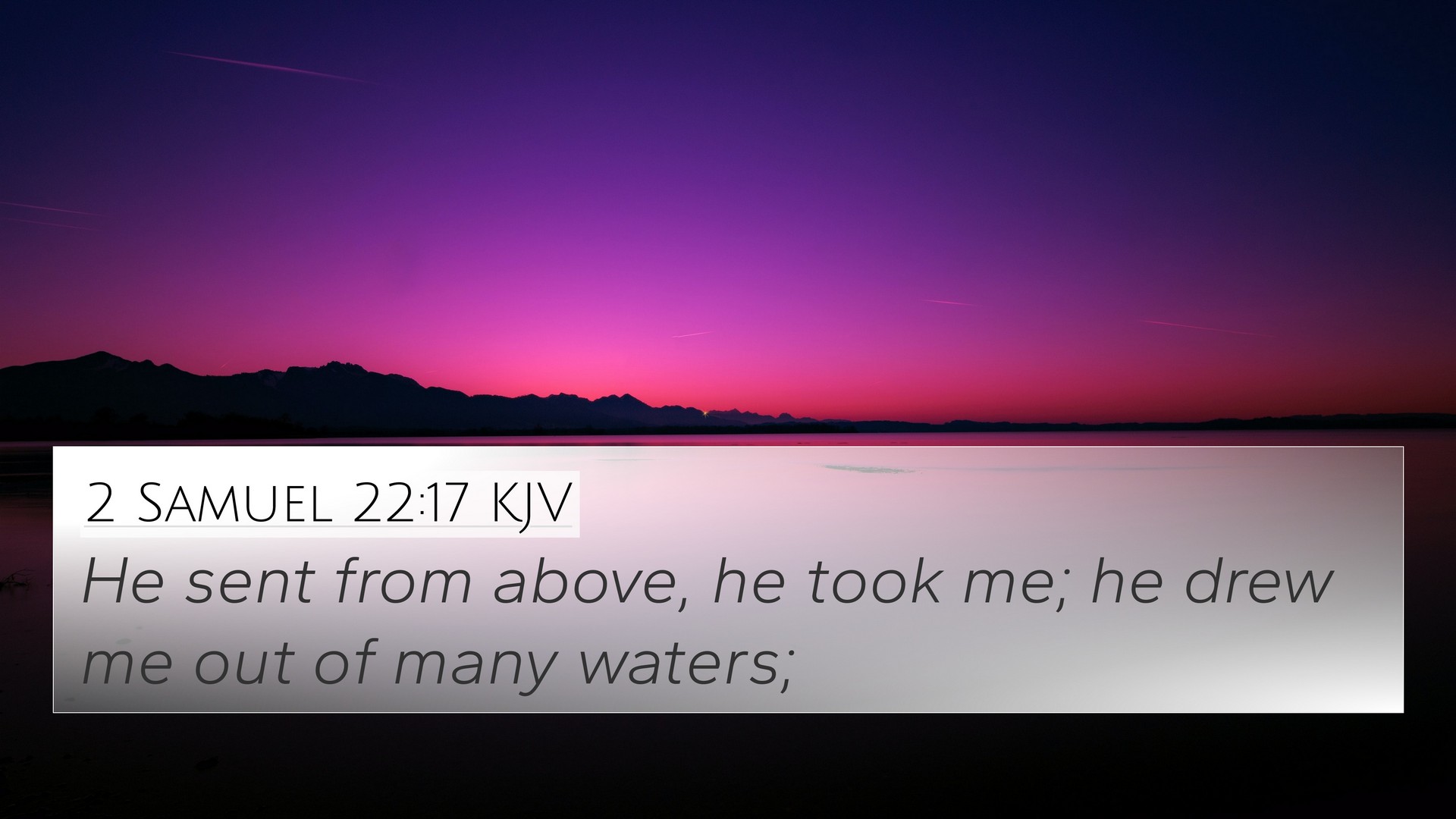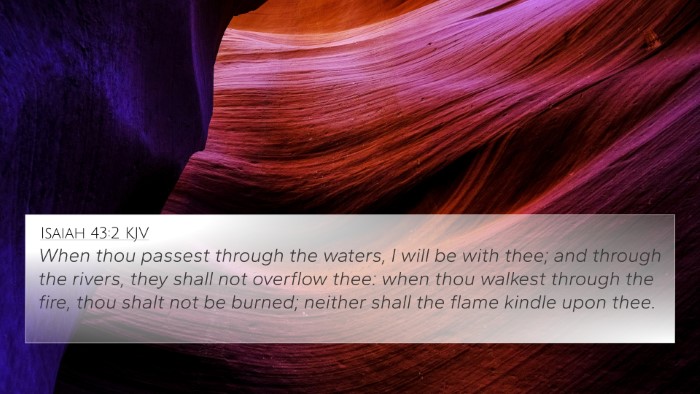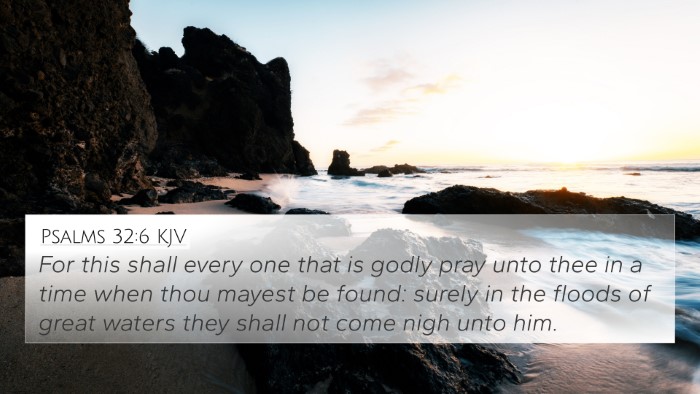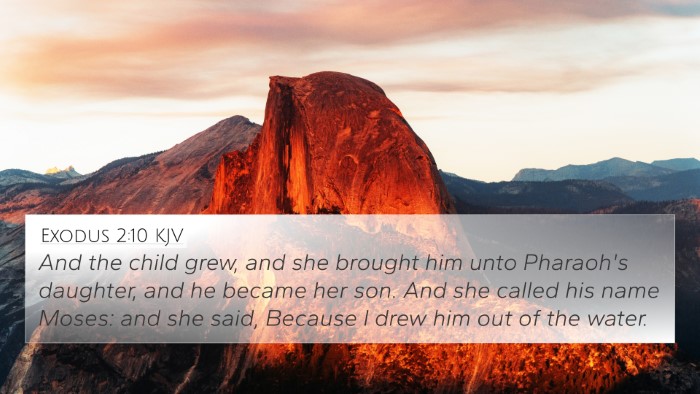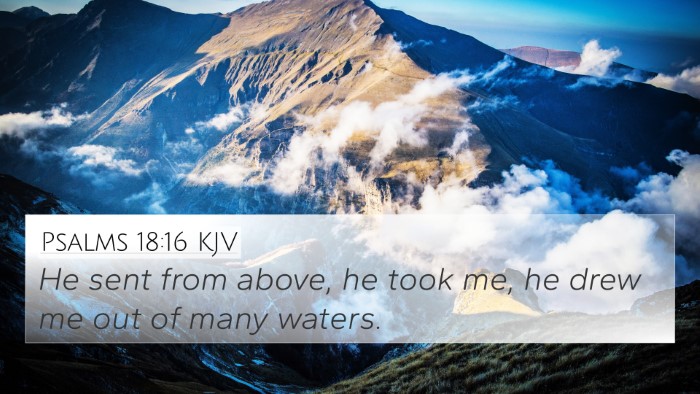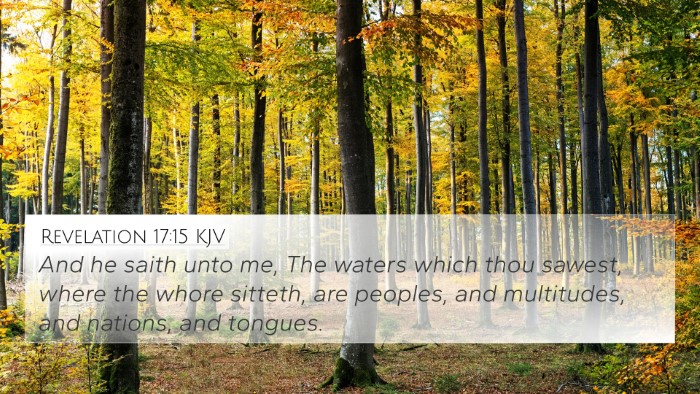Understanding 2 Samuel 22:17
2 Samuel 22:17 states: "He sent from above, he took me; he drew me out of many waters." This verse is part of David's song of thanksgiving, reflecting on God's deliverance and protection.
Meaning and Interpretation
The verse captures a profound moment where David acknowledges God's intervention during his times of distress. The "waters" symbolize overwhelming troubles and adversities, which David felt engulfed him. His metaphorical language serves to illustrate not only the peril he faced but also the divine rescue that followed.
Commentary Insights
-
Matthew Henry:
Henry emphasizes the significance of God's intervention, noting that David saw himself as powerless against the overwhelming forces that threatened him. The act of being drawn out of waters suggests a restoration and upliftment from despair, highlighting God as a refuge.
-
Albert Barnes:
Barnes points out that the "many waters" can be understood both literally and symbolically. He interprets this as a reference to enemies and dangers that can feel like an unstoppable flood. God's ability to rescue David from such peril demonstrates His omnipotence and readiness to save those who call upon Him.
-
Adam Clarke:
Clarke analyzes the poetic structure of the verse, noting its expression of deep gratitude. He argues that the phrase indicates a personal relationship between David and God, showcasing that in his trials, David experienced direct intervention which brought both physical and spiritual salvation.
Cross-References Related to 2 Samuel 22:17
- Psalm 18:16: "He sent from above, he took me; he drew me out of many waters." - This verse closely mirrors 2 Samuel 22:17, emphasizing divine rescue.
- Isaiah 43:2: "When you pass through the waters, I will be with you." - Indicates God's promise of presence during trials.
- Psalm 69:1: "Save me, O God! For the waters have come up to my neck." - Expresses a similar cry for help in distress.
- Jonah 2:6: "I went down to the moorings of the mountains; the earth with its bars closed behind me forever; Yet You have brought up my life from the pit, O Lord." - Acknowledges God's deliverance from dire situations.
- 2 Timothy 4:18: "And the Lord will deliver me from every evil work and preserve me for His heavenly kingdom." - Affirms God’s ongoing protection and rescue.
- Matthew 14:30: "But when he saw the wind boisterous, he was afraid; and beginning to sink, he cried, saying, Lord, save me." - Reflects the same theme of calling for salvation amidst peril.
- Revelation 7:17: "For the Lamb who is in the midst of the throne will shepherd them and lead them to living fountains of waters." - Symbolizes eternal safety and provision from God.
Thematic Connections
This verse can also be examined through thematic Bible verse connections, illustrating common motifs of divine rescue throughout Scripture. The themes of overwhelming trials and God's faithful deliverance run consistently through both the Old and New Testaments.
Inter-Biblical Dialogue
Through cross-referencing Biblical texts, we can observe patterns and connections between the trials faced by biblical figures and God's unwavering support. Each referenced verse provides context to 2 Samuel 22:17, enhancing our understanding of God's character as a protector and savior.
Practical Application
For modern readers, understanding the meaning of 2 Samuel 22:17 with a focus on the concept of divine deliverance can provide comfort during distressing times. This verse encourages believers to reach out to God actively, trusting in His ability to uplift and rescue.
How to Use Bible Cross-References
Using tools for Bible cross-referencing can deepen one's study. Here are some methods:
- Utilize a Bible concordance to find associated themes and topics.
- Make a Bible cross-reference guide to gather related verses like 2 Samuel 22:17.
- Engage in cross-reference Bible study groups for collective insights.
- Employ a Bible cross-reference system for systematic study of related texts.
Conclusion
2 Samuel 22:17 stands as a testament to God's mighty hand in the life of David, illustrating the broader biblical narrative of dependence on divine assistance. By exploring Bible verses that relate to each other, believers can foster a deeper appreciation of God's ongoing work throughout Scripture.
